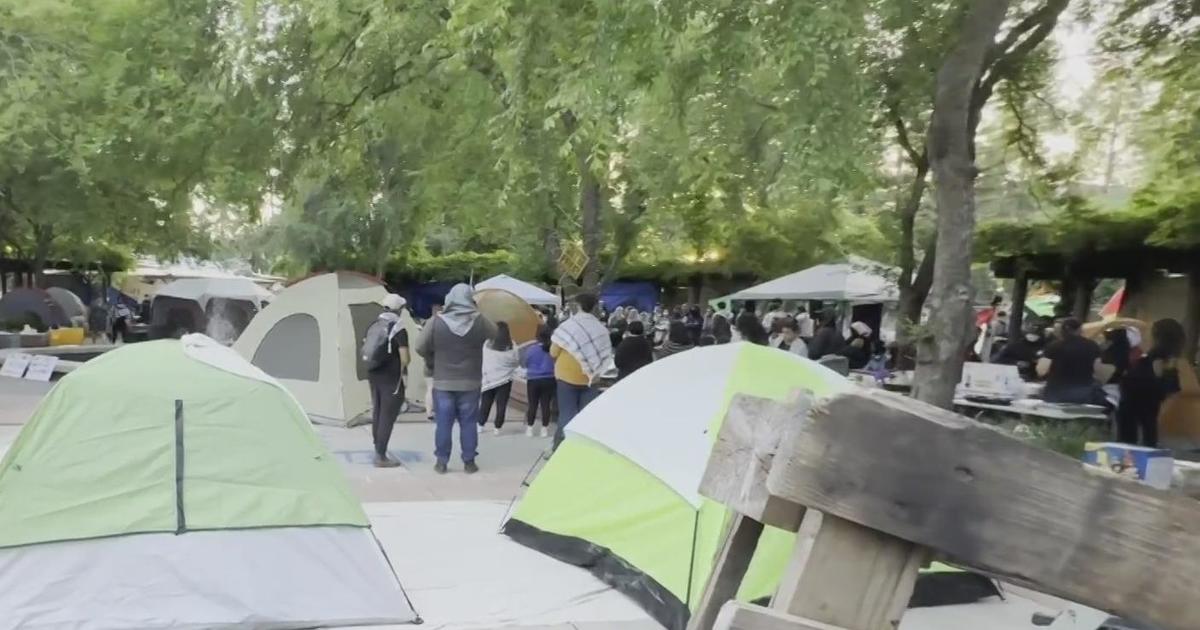AAPI Heritage Month: One woman's incredible story of determination and true grit
SACRAMENTO — It's AAPI Heritage Month and one local woman has an incredible story of determination and true grit. Her name is Kiyo Sato, and she just celebrated her 100th birthday.
"On that Sunday of the [Pearl Harbor attack], we were all happily working in the walnut orchard," Sato said. "The radio wasn't working, so we didn't hear any news."
Sato looks back at that dark moment in history and how it changed her life and the lives of so many Japanese Americans during the height of World War II.
"The United States of America was suddenly and deliberately attacked by naval and air forces of the empire of Japan," she said.
In the weeks that followed the attack on Pearl Harbor, President Roosevelt would sign Executive Order 9066, stripping people of Japanese descent of their civil rights. Sato, the eldest daughter of Japanese immigrant parents and one of nine children, was 19 years old at the time and had just started college in Sacramento.
"I walked down the hallway and my regular friends weren't even talking to me. They pretended that they didn't see me," she said. "The fog of hate was terrible, terrible."
Posters soon went up, ordering evacuations. Sato and her family were evicted from their 20-acre farm near Mather Field and headed for the train station.
"I thought until the very last minute that our President is going to come to his senses and say this is wrong, this is wrong. So when that train started to move, I just broke down and cried," Sato said.
The train ride would take them to a temporary detention facility in Pinedale, just outside of Fresno. There, they would stay for nearly three months. It's a vivid memory Sato would rather forget.
"I still have PTSD from Pinedale," she said. "I still even now have dreams of not finding a proper toilet."
From one horrible situation to another, Sato and her family arrived at an internment camp in Poston, Arizona — an Indian reservation where the temperature on their first day reached 127 degrees. Life was miserable for the 18,000 prisoners forced to live in uninsulated barracks, shared common bathrooms, slept on mattresses stuffed with hay, and were surrounded by barbed wire.
But soon, Sato got an opportunity to leave after her father found out students were being released. She applied to a college in Michigan and got accepted. Now train-bound to a new beginning, Sato would meet a young train assistant whose constant and curious questions about her life helped her to open up.
"I give him credit for getting me to feel free to say something, to tell the truth," she said.
She's been doing that ever since. When she got rejection letters from nursing schools from Yale, Johns Hopkins and Case Western Reserve because of her ethnicity, she wrote to all three and said: "My brother and all the others are fighting to uphold democracy I said, I can't understand a school of your standing having this kind of policy."
All three schools followed up by sending her applications. Sato opted to attend Case Western Reserve, joined the U.S. Air Force and achieved the rank of captain. She and her family eventually made it back to Sacramento but life wouldn't ever be the same. At the age of 80, Sato wrote her first book, "Dandelion Through the Crack." The title was part of her father's haiku.
"Dandelion, you've been stepped on for so many times, so many days, today you bloom," she said.
Sato is working on a second book. She's also a public speaker, and on her spare time, she enjoys hoola dancing.




